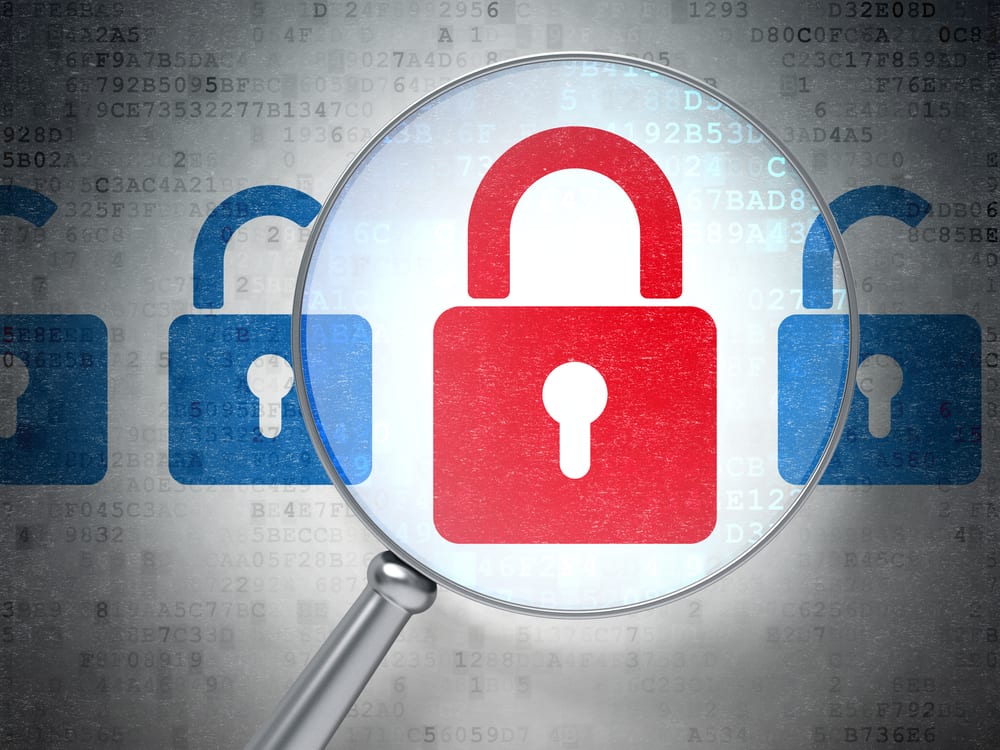With nearly half of small businesses failing before their 5th birthday, it’s crucial that you do everything in your power to protect your company. That being said, you need to ensure that your sensitive data is safe. There’s no mistaking it, there are thieves out there looking to commit fraud and identity theft. As a result, small businesses are finding themselves increasingly targeted. And according to data from the National Archives & Records Administration in Washington, the statistics say you’re small business is one data breach away from bankruptcy.
So what can you do to minimize risk of data breach? Here are four tips you need to follow to make sure your important information is secure.
# 1. Pinpoint your sensitive data
You can’t ensure that your data is secured if you aren’t sure where or what that data is. That being said, it’s important that before anything else, you decide what pieces of your data you possess that needs document scanning. For example, perhaps you have customer credit card information. Or maybe you have social security numbers on file. Or maybe it’s your own company’s credit accounts.
Whatever the case, once you figure out what the sensitive data actually is, then you need to figure out where it’s stored. After you find it, take a closer look at what you’re doing to protect it in its existing space.
# 2. Background and reference check all new employees
As a small business owner, you may find yourself eventually having to hire new employees as you begin to expand. That’s great—it’s a sign of flourishing. However, hiring a new employee can be scary. After all, you’re going to have to trust them with your sensitive data.
It’s really scary when you start looking at the data. According to CBSnews.com, the average company loses 5% of revenue to employee fraud. On top of that, around one-third of employees steal from their place of work in some form or fashion. Other sources estimate that as much as three-fourths of employees steal from their companies. Those are some bleak odds!
So how can you keep new employees from compromising the security of your sensitive information? Be proactive. Run background checks on everyone. Not sure how? Look to the SBA for more information. But don’t stop there. You know those references you ask for on your applications. Make sure you check them! If your future employee has engaged in sketchy behavior in the past, there’s a decent chance their former employers will warn you about it.
# 3. Institute a “shred all” policy and destroy documents professionally
You absolutely never want to throw paperwork with sensitive information in the trash. Doing so is just asking for a security breech. All it takes is one disgruntled custodian or a shady passer-by to see an account number, slide the paper in their pocket, and you’re in big trouble.
Some companies combat this issue by providing their employees with their own personal shredders. However, this still leaves room for error, as not all employees will necessarily use the same discretion when shredding documents.
According to the information security experts at Shred-It, you should go with a “shred everything” policy to ensure that no sensitive information gets into the wrong hands. Taking it one step further, you might consider using a professional company to shred all documents—someone with a trusted name who can ensure that all necessary documents are properly dealt with.
# 4. Take precautions with your copy machine
If your business is like most, then you couldn’t make it without your copy machine. However, what most people don’t realize is that these copy machines often store the scanned data in their memory. In other words, those account statements you’ve been copying are stored in the machine’s hard drive. Imagine the implications…
It’s pretty common for businesses to lease these machines. So what happens when you send the copier back? Who knows where it’s going to end up. And who knows who is going to gain access to all that vital information.
But obviously you can’t quit using a copier. However, you can take a few precautions. Before you lease a copier, find out about their security features. According to Bureau of Consumer Protection’s Business Center, you’re looking for two words: encryption and overwriting. The former scrambles the data so it can’t be used later, and the latter allows you to erase memory.
Prevention is Key
What it all boils down to is this – if you don’t take steps to secure information, it will leak. And when it leaks, people will take advantage. Avoid the heartache and do what you can to secure your sensitive data.
Did you like this article?

- Please share it with your network, we’d really appreciate it!
- Would you like to write for Tweak Your Biz? Or sign up for our RSS?
- An outstanding title can increase tweets, Facebook Likes, and visitor traffic by 50% or more. Generate great titles for your articles and blog posts with the Tweak Your Biz Title Generator.
Connect with Tweak Your Biz on: 


Images: ” Information security concept — Magnifying optical glass with closed and opened locks icons on digital background, 3d render / Shutterstock.com“


